Welcome to my blog post on “What is Ethical and Sustainable fashion?!”. In this complete guide, we will delve into the meaning of ethical fashion, sustainable fashion, whilst also exploring their positive influence on the planet, people and principles.
Did you know? 92 million tons of textile ends up in landfills!
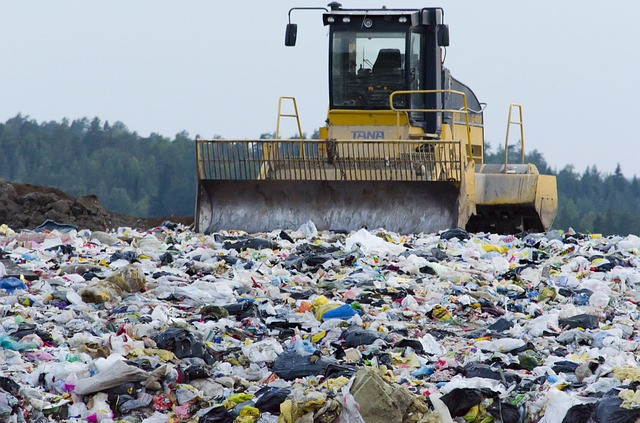
Image Source: Prylarer, Pixabay
92 million tonnes of Textiles Waste is Produced Every Year! Of the 100 billion garments produced yearly, 92 million tonnes end up in landfills.
In order to gain a broader view, every second the equivalent of a garbage truck full of clothes ends up in landfills. If this pattern continues, the number of fast fashion waste is expected to soar up to 134 million tonnes per year by the end of the decade.
Ethical and sustainable fashion has emerged as a beacon of change within the fashion industry in a world increasingly conscious of environmental and social impact!
Organizations are gradually becoming more sustainable. No wonder Toronto-based, luxury apparel company Canada Goose announced Thursday July 27th that it is bringing generations, a platform allowing consumers to shop for and trade in pre-loved pieces from the brand to Canada!
Grab a cup of coffee and let’s dive into the world of ethical and sustainable fashion as we navigate five areas of ethical and sustainable fashion and showcase real-world examples of some brands leading the charge towards a future that’s greener and also brighter!
What is Ethical and Sustainable Fashion?
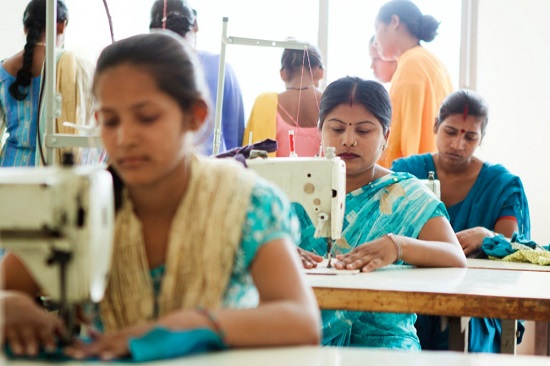
Image source: Shirdi Sai Baba Society-Unsplash
Ethical Fashion
Ethical fashion simply refers to transparency, fair treatment, and respect for all the people involved in the fashion supply chain.
In essence, ethical fashion takes into consideration garment workers, farmers and artisans; it ensures fair wages, the absence of child labor and safe working conditions. Ethical brands prioritize the well-being and dignity of everyone throughout their operations.
A good example is People Tree; a leading ethical fashion brand empowering artisans and farmers in developing countries. People tree produces stylish clothing and accessories; they partner directly with Fair Trade producers while also championing sustainability and transparency.
Sustainable Fashion
Sustainable fashion centers around reducing environmental impacts and promoting responsible practices in the fashion industry.
Main components include reducing carbon footprints, using eco-friendly materials, waste reduction and adopting circular economy principles that encourage recycling and upcycling. Sustainable brands strive to protect the environment, promote biodiversity and conserve resources.
An example of a sustainable fashion brand is Patagonia, an outdoor apparel brand. They actively advocate for environmental conservation through initiatives like “1% for the Planet.” They also use organic and recycled materials and promote repair services for their products.
Eco-Friendly Materials in Fashion
An important aspect of sustainable fashion lies in the materials used to create clothing and accessories. Sustainable brands seek alternatives such as tencel, organic cotton, recycled fibers and hemp. These environmentally friendly materials reduce the environmental footprint and contribute to a more sustainable fashion ecosystem.
An example is Reformation, a renowned sustainable brand, committed to using environmentally friendly fabrics like Tencel, and deadstock materials to create their beautiful and stylish collections.
One thing I like about Reformation is that they also provide detailed information about the environmental impact of each product on their website. This in my opinion fosters conscious consumer choices and transparency.
Circular Fashion and Waste Reduction
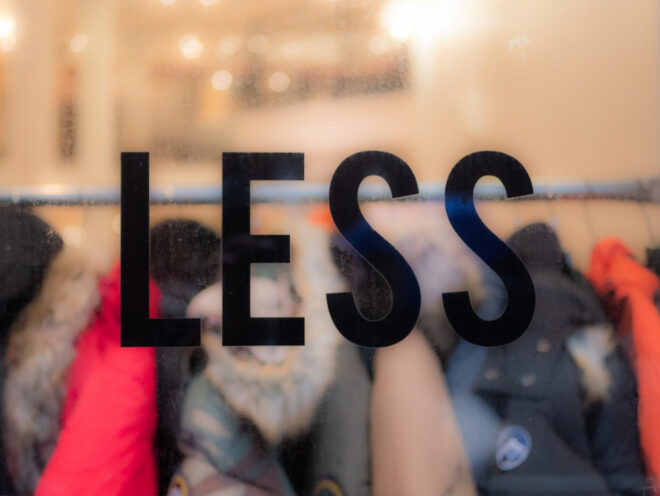
Image Source: Blowup unsplash
Circular fashion aims to close the loop on the fashion industry’s linear model, where clothing is thrown out after use.
Circular fashion promotes a circular economy, where products are designed to be recycled, repaired, or upcycled at the end of their life.
By reducing waste generated and extending the life cycle of garments and other accessories, circular fashion strives for a more sustainable future.
An example is Eileen Fisher, a sustainable fashion brand that practices circularity through their “Eileen Fisher Renew” program. They collect, repair, and re-sell gently worn Eileen Fisher clothing. This contributes to waste reduction and also promotes a circular approach to fashion. Now that we’ve answered the question “What is ethical and sustainable fashion”, lets look at the social impact of ethical fashion.
Social Impact of Ethical Fashion

Image Source: Olivia Higgins, Unsplash
The beauty of ethical fashion is that it benefits the environment and also has a huge social impact! Brands that prioritize ethical practices empower communities and support social causes.
Ethical fashion brands contribute positively to society through fair trade partnerships, community initiatives and skill development programs.
An example is Able, a fashion brand that prioritizes empowering women known for its ethical practices. They offer job opportunities, fair wages, and holistic support to women in vulnerable communities through their “ABLE Women” initiative.
10 Reasons Why You Should Support Ethical and Sustainable Fashion Brands
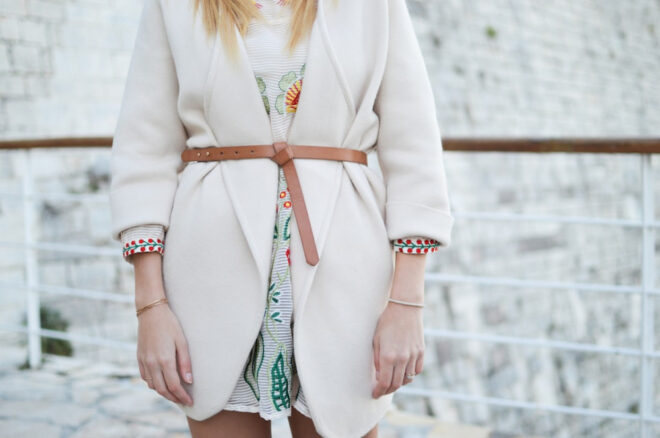
Image Source: Tamara Bellis, Unsplash
Supporting ethical and sustainable fashion brands offers several benefits for us and our planet. Here are compelling reasons why you should consider supporting such brands:
1. Environmental Conservation:
Ethical and sustainable fashion brands prioritize eco-friendly methods, using organic, recycled, and renewable materials.
You contribute to reducing the fashion industry’s overall environmental impact, including the depletion of natural resources and the generation of harmful waste by simply choosing these brands.
2. Reduced Carbon Footprint:
Sustainable fashion brands often implement measures to minimize their carbon footprint, such as using renewable energy and adopting circular economy principles.
Supporting these brands helps combat climate change by reducing greenhouse gas emissions associated with conventional fashion production.
3. Fair Labor Practices:
By supporting ethical fashion brands that uphold fair labor standards, ensuring fair wages for garment workers and safe working conditions, you contribute to the empowerment of workers and help put an end to exploitative practices in the fashion industry.
4. Social Impact:
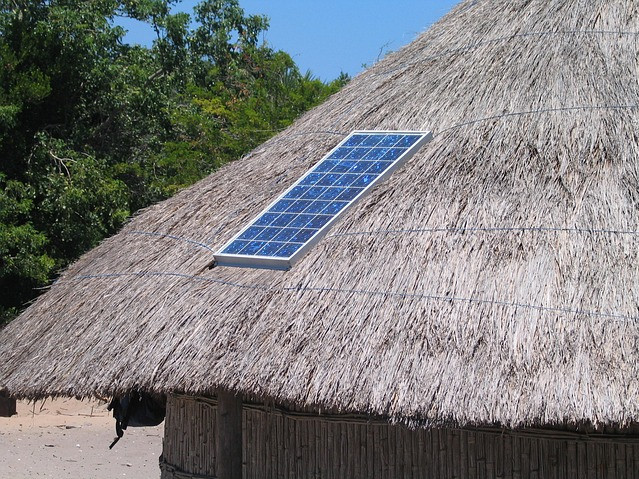
Image Source: Cotrim, Piaxabay
Several ethical fashion brands support social causes and engage in community development projects.
Your support allows them to make a positive impact on the lives of marginalized communities, particularly in developing countries where the fashion industry plays a huge role in the economy.
5. Quality and Durability:
Sustainable fashion emphasizes materials of high-quality, which results in durable clothing and accessories that lasts longer than fast fashion alternatives.
By investing in durable pieces, you reduce the need for frequent replacements, in turn you save money and also reduce waste!
6. Empowering Women:

Image Source: Malicki M. Besser, Unsplash
Many ethical fashion brands focus on empowering women in vulnerable communities through fair trade partnerships and skill development programs.
Supporting these brands contributes to economic empowerment and gender equality for women.
7. Encouraging Industry Change:
By supporting ethical and sustainable fashion, you’re sending a message to the fashion industry that you really do care about responsible and conscious practices.
This encourages other brands to adopt more ethical and sustainable approaches, driving positive change throughout the fashion industry.
8. Conscious Consumerism:
You can make a meaningful difference through your daily actions. Supporting ethical and sustainable fashion is a form of conscious consumerism, where your purchasing choices and values align; this contributes to positive environmental and social outcomes.
9. Healthier Choices:
Sustainable fashion often uses natural and non-toxic materials, reducing the risk of exposure to dangerous chemicals commonly found in conventional clothing.
This promotes healthier lifestyles for you the consumer and also the workers.
10. Encouraging Innovation:
You contribute to fostering innovation in the fashion industry when you support ethical and sustainable fashion brands.
These brands are incentivized to find creative solutions to reduce their impact, leading to more innovative and responsible practices.
Are Ethical and Sustainable Fashion Brands Affordable?
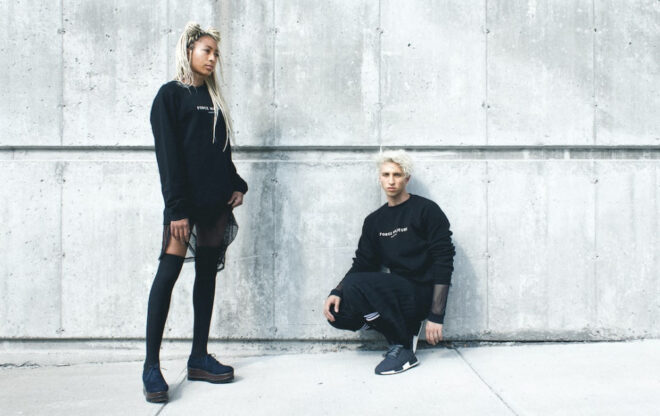
Image Source: Force Majeure, Unsplash
Ethical and sustainable fashion brands can vary in their pricing, but they are often associated with higher price points compared to fast fashion alternatives. This is primarily because ethical and sustainable fashion brands prioritize fair wages, eco-friendly materials, and responsible production practices, which can incur higher costs.
While some ethical and sustainable brands may be more expensive, it’s important to consider the long-term value and benefits they offer. These include:
1. Quality and Durability:
Ethical and sustainable fashion brands tend to use high-quality materials; this results in clothing that lasts longer and withstands wear and tear better than cheaper, alternatives that are mass-produced. This can lead to cost savings over time as you won’t need to replace your clothing as frequently.
2. Reduced Waste:
when you Invest in well-made, long-lasting pieces, the amount of clothing that ends up in our landfills reduces, contributing to a more sustainable and less wasteful fashion industry.
Social Impact: By supporting ethical brands, you are contributing to empowering communities, improved working conditions for garment workers, and supporting ethical business practices.
3. Eco friendly Materials:
Sustainable fashion often uses environmentally friendly materials that are better for the environment. This reduces the fashion industry’s overall environmental impact.
It is important to point out that the price of ethical and sustainable fashion may vary among brands and specific products. While some brands may be more exclusive and higher-end; others may focus on accessible pricing in order to appeal to a broader audience.
Additionally, there are emerging initiatives and brands that bridge the gap between ethical practices and affordability; more of this in the next section.
As the demand for ethical and sustainable fashion continues to grow, there is a positive trend towards more accessible pricing and options for consumers like you and I.
Considering the positive impact on the environment, society, and the overall quality of the products, the investment in ethical and sustainable fashion is worthwhile in my opinion.
Initiatives That Bridge The Gap Between Ethical Practices and Affordability
These initiatives are becoming increasingly prevalent in the fashion industry. They focus on making sustainable and ethical fashion more accessible to a wider audience. Some examples include:
Ethical Fashion Startups:
Innovative startups like Tentree are emerging with a mission to produce ethical and sustainable fashion at competitive prices. These startups focus on ethical sourcing, transparency, and direct-to-consumer models to keep costs lower.
Thrift and Secondhand Marketplaces:
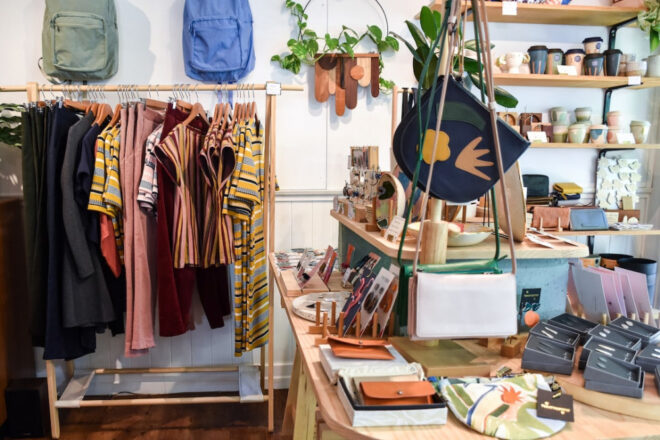
Image Source: Socialcut, Unsplash
Online thrift stores and secondhand marketplaces have also gained popularity, offering pre-loved clothing and accessories at prices that are affordable for you and I.
Embracing secondhand shopping is great because it promotes circular fashion and ultimately reduces the demand for new clothing production.
Sustainable Fashion Collections by Mainstream Brands:
Several mainstream fashion brands are launching sustainable fashion collections that offer more affordable options with a reduced environmental impact. Their collections incorporate eco-friendly materials and ethical practices.
Affordable Sustainable Basics:
Some brands specialize in producing sustainable and ethical basics, such as jeans, t-shirts and essential wardrobe pieces, at affordable prices. These basics are often timeless, versatile, and designed to last long.
Sustainable Collaborations:
Eco-friendly products are introduced to a broader audience when sustainable fashion brands collaborate with other influencers or retailers.
Rental Services and Membership :
Some platforms offer rental services or membership for high-quality, sustainably produced clothing. This allows customers to access a rotating wardrobe of fashionable pieces without owning them.
Discount or Sale Events:
Ethical fashion brands occasionally offer discounts or host sale events on their products to make sustainable fashion more accessible during certain periods.
The Bottom Line
I hope you found this post on “What is Ethical and Sustainable Fashion” helpful. As demand for sustainable fashion continues to grow, more options for affordable and ethical clothing will become available in the market. Ethical and sustainable fashion is indeed a transformative movement towards a better world for us and future generations.
Ethical and sustainable fashion brands set the standard for a greener and more equitable future by considering the welfare of workers and protecting the environment simply by embracing circularity measures such as waste reduction through the use of recycled materials, promoting repair services and reselling or donating gently worn garments.
As consumers, supporting these brands allows us to contribute to positive change, making fashion a powerful tool for social and environmental progress.
Would you be supporting ethical and sustainable fashion brands? Drop a comment in the section below and let us know.
